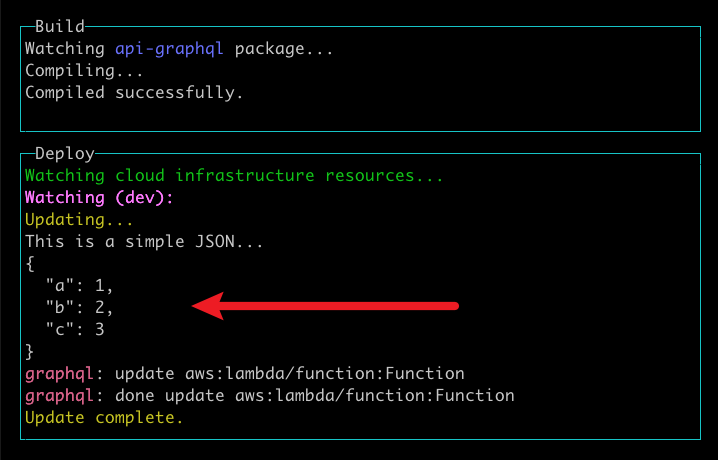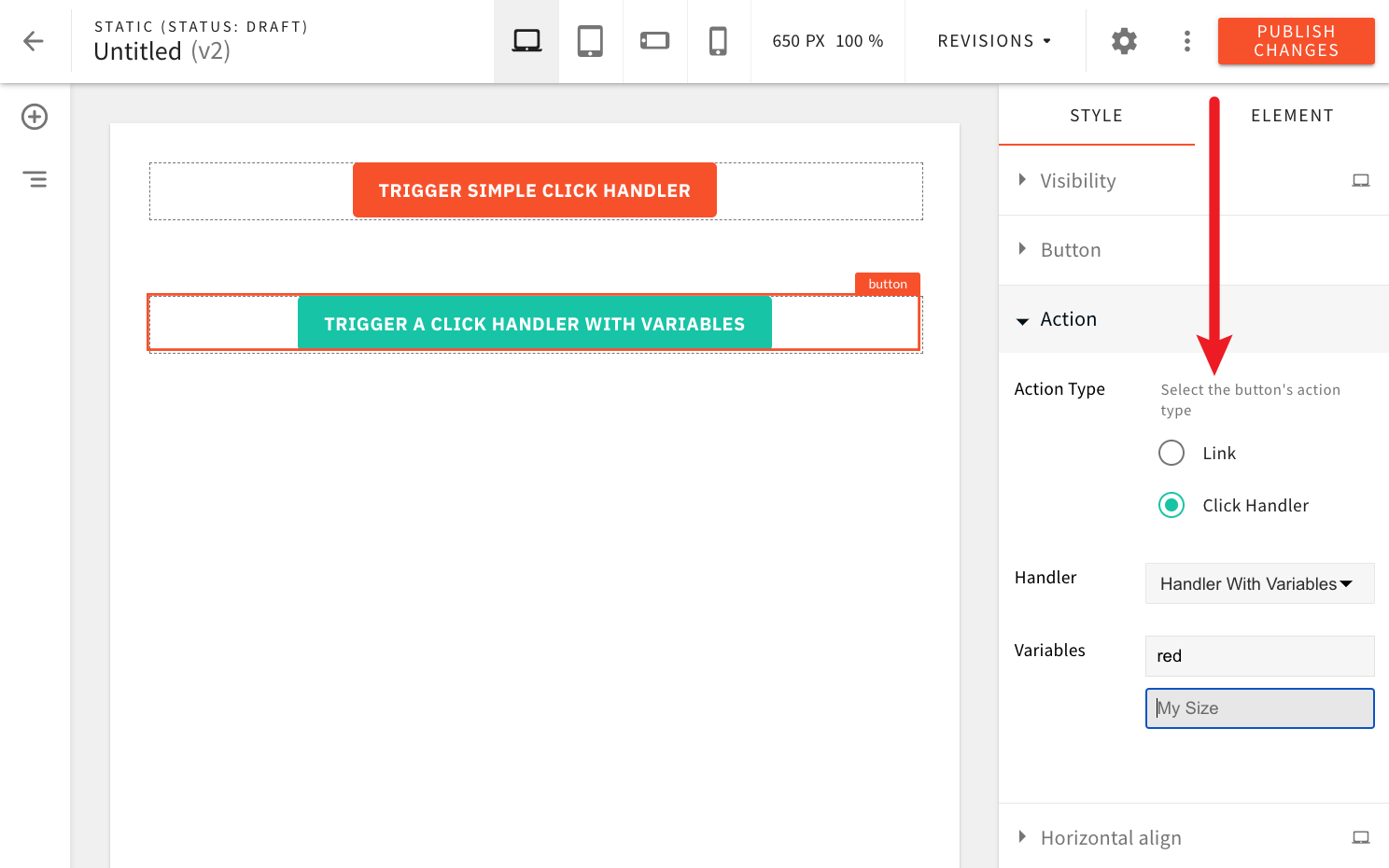Changes
Development
Locked Versions of @pulumi/* Packages (#2089  )
)
In attempt to make things a bit more stable, we’ve decided to put a lock on the @pulumi/* NPM package versions. Locking has been achieved via the resolutions 
package.json file.
@pulumi/* NPM packages are being utilized by Pulumi, the underlying infrastructure-as-code (IaC) solution Webiny relies on. To learn more, check out the Infrastructure as Code With Pulumi key topic.
For existing projects that are being upgraded to 5.19.0, the resolutions property will be updated via the webiny upgrade command.
Pulumi SDK - Using Correct Separator When Constructing PATH Environment Variable (#2084  )
)
Because of an issue in the construction of the PATH environment variable in our internal Pulumi SDK 
Thank you goes to @snstanton 
Fixed Incorrect AWS Profile Being Logged During Deployment (#2078  )
)
In order to use the webiny deploy command, AWS credentials need to be set, which can be done in multiple ways.
When relying on environment variables, users can choose to either use a combination of AWS_ACCESS_KEY_ID and AWS_SECRET_ACCESS_KEY, or a single AWS_PROFILE variable. In case of the former, we’ve noticed that, during deployment, an incorrect message would get displayed in the terminal, saying AWS profile “undefined” is being used.
This has now been addressed. From now on, when a combination of AWS_ACCESS_KEY_ID and AWS_SECRET_ACCESS_KEY environment variables is used, the AWS Access Key ID will be displayed instead.
New acl and cacheControl Options on the uploadFolderToS3 Function (#2066  , #2083
, #2083  )
)
The uploadFolderToS3 
apps/admin/cli/deploy.ts 
apps/admin/cli/deploy.ts 
With this release, we’ve improved this utility function, by enabling users to specify the acl 
cacheControl 
Once again, a big thank you to @snstanton 
The acl property lets you set Canned ACL for every uploaded file. To learn more, check out official AWS documentation 
webiny deploy Command - Introduced --deploy Flag (#2096  )
)
A new --deploy flag has been added to the webiny deploy.
By setting it to false (by passing --no-deploy), this small addition allows users to skip the deployment step, which can be useful if they only want to build the specified project application. For example:
yarn webiny deploy api --env dev --no-deploywebiny watch Command - Fixed Multiline Logs (#2103  )
)
Previously, if you were to add multiline logs in your cloud infrastructure (Pulumi) code, the webiny watch command’s terminal output would get truncated. This has now been addressed, so you can freely add any additional multiline logs that you might need.

Page Builder
Button Page Element - Ability to Register A Custom Callback Handler (#2022  )
)
Prior to this release, we could say the default Button page element was a bit “basic”, since it was only capable of representing a link and nothing else. But, not anymore.
Thanks to @econtentmaps 
PbButtonElementClickHandlerPlugin 

Here are a couple of quick examples that show how to use this new plugin type:
import { PbButtonElementClickHandlerPlugin } from "@webiny/app-page-builder/types";
export default [
// Registers a simple click handler that doesn't depend on any variables.
{
type: "pb-page-element-button-click-handler",
name: "simple-handler",
title: "A Simple Handler",
// Once the button is clicked, we display a simple alert message.
handler: params => {
alert("I was clicked!");
}
},
// Registers a click handler that depends on two variables (color and size).
{
type: "pb-page-element-button-click-handler",
name: "handler-with-variables",
title: "Handler With Variables",
// Here are the variables that users will be able to set via the
// button's "Action" settings (in the Page Builder editor).
variables: [
{ name: "color", label: "My Color", defaultValue: "red" },
{ name: "size", label: "My Size", defaultValue: "XXL" }
],
// Once the button is clicked, we simply log the received variables.
handler: function({ variables }) {
console.log(variables); // Logs { color, size } object.
}
} as PbButtonElementClickHandlerPlugin<{ color: string; type: string }>
];Headless CMS
Searching the Reference Field for Any Version of the Entry (#2068  )
)
For example, we have models Category and Article, and Category is a single value ref field on the Article model.
Prior to 5.19.0 you could not search all Articles that have Category, for example, My Category in any version. From now on, you will be able to.
Here is an example of the GraphQL Query for it:
{
listArticles(
where: {
category: {
entryId: "61a8c8a4625b0c0008fc8652"
}
}
) {
data {
id
category {
id
}
}
}
}Uppercase and Lowercase Field Validators With Space (#2080  )
)
We added new validators that will match either A-Z + space or a-z + space. They are available in newly created projects from 5.19.0 onward.
If you need them in your existing project, you will need to add them in your apps/admin/code/src/plugins/headlessCms.ts file.
You need to add 4 plugins in total:
import lowerCaseSpaceFieldValidator from "@webiny/app-headless-cms/admin/plugins/validators/patternPlugins/lowerCaseSpace";
import upperCaseSpaceFieldValidator from "@webiny/app-headless-cms/admin/plugins/validators/patternPlugins/upperCaseSpace";
import editorLowerCaseSpaceFieldValidator from "@webiny/app-headless-cms/admin/plugins/fieldValidators/patternPlugins/lowerCaseSpace";
import editorUpperCaseSpaceFieldValidator from "@webiny/app-headless-cms/admin/plugins/fieldValidators/patternPlugins/upperCaseSpace";And, of course, add them to the default export array:
export default [
// ...existing plugins
lowerCaseSpaceFieldValidator,
upperCaseSpaceFieldValidator,
editorLowerCaseSpaceFieldValidator,
editorUpperCaseSpaceFieldValidator,
];